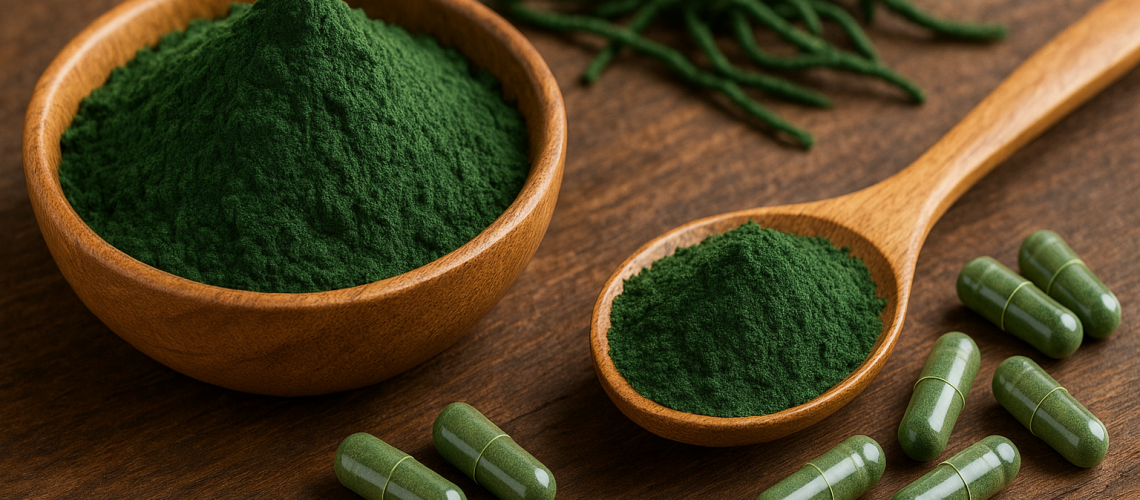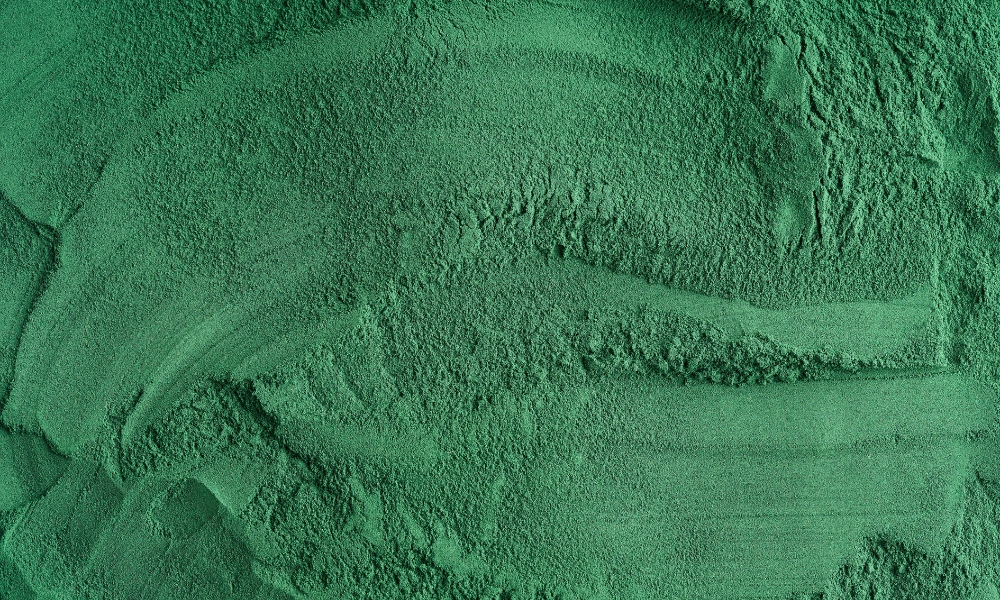Made with under the sun daily.
Made with under the sun daily.

Superfoods come and go, but one name that consistently pops up in health circles is spirulina. From wellness influencers to NASA scientists, spirulina has been praised as one of the most nutrient-dense foods available. But the big question remains: Is spirulina the healthiest food on earth? Let’s explore the science, nutrition, and expert opinions behind this “miracle” algae.
Spirulina is a type of blue-green algae that grows in both freshwater and saltwater. It’s technically a cyanobacterium that is safe for human consumption. Its vibrant green colour comes from chlorophyll, while the bluish tint comes from phycocyanin, a powerful antioxidant.

Spirulina isn’t new. Ancient civilisations, such as the Aztecs, harvested it from lakes as a rich source of protein. Fast forward to today, spirulina is cultivated worldwide and has even been studied by NASA as a sustainable food source for space travel.
Spirulina earns its “superfood” reputation due to its remarkable nutritional profile. Just a few grams of Fresh Pure Spirulina Powder pack more nutrients than many whole foods.
Spirulina is about 60–70% protein by dry weight, making it one of the richest plant-based protein sources. It also contains all essential amino acids, rivalling animal protein.
Phycocyanin, found in spirulina, is a potent antioxidant that helps combat free radicals and reduce inflammation. This compound gives spirulina its blue hue and unique healing potential.
Spirulina stimulates the production of antibodies and infection-fighting cells, helping the body ward off illnesses.
Studies show spirulina can reduce LDL cholesterol and triglycerides while raising HDL cholesterol. This makes it a heart-friendly supplement.
Clinical trials suggest spirulina improves insulin sensitivity and lowers blood sugar levels, making it beneficial for those managing diabetes.
Athletes often take spirulina for its ability to boost endurance, reduce fatigue, and support muscle recovery after intense workouts.
Spirulina binds with heavy metals like arsenic and helps flush them from the body, supporting natural detoxification.
Both are algae, but chlorella is higher in chlorophyll, while spirulina offers more protein and antioxidants.
While kale and spinach are nutrient-rich, spirulina outshines them in protein density and unique antioxidants.
Unlike whey protein, spirulina provides micronutrients + protein, making it a more balanced supplement.
Most experts recommend 1–3 grams daily, although some studies have used up to 10 grams and even higher for Fresh Raw Spirulina.
Mild digestive issues or headaches may occur when starting spirulina. Always choose certified, toxin-free sources to minimise the risk of contamination.
Research supports spirulina’s role in immune health, cardiovascular support, and detoxification, but it shouldn’t replace a balanced diet.
Experts agree spirulina is a nutrient powerhouse, but stop short of calling it the “single healthiest food.” It’s best viewed as a valuable supplement to an already balanced diet.
Q1: Is spirulina safe for daily use?
Yes, most people can safely take spirulina daily in recommended doses.
Q2: Can spirulina help with weight loss?
It may support weight loss by reducing appetite and boosting metabolism.
Q3: Does spirulina really detox the body?
Yes, spirulina removes toxins. It binds to heavy metals and supports natural detox pathways.
Q4: Is spirulina suitable for vegans?
Absolutely! Spirulina is a plant-based and excellent vegan source of protein.
Q5: What is the best form of spirulina to take?
Powder for recipes, capsules for convenience.
Q6: How long does it take to see the benefits of spirulina?
This changes from one individual to the next. Benefits usually appear within 2–4 weeks of consistent use.
So, is spirulina the healthiest food on earth?
While it’s not a magic cure-all, spirulina is undeniably one of the most nutrient-dense, health-promoting foods available today. Packed with protein, antioxidants, and essential vitamins, it deserves its place among the top superfoods. For optimal health, consider incorporating spirulina as a supplement to a well-balanced and varied diet.
If you’re looking for a natural way to boost your energy, immunity, and overall wellness, spirulina might be your new best friend.
Karkos, P.D., Leong, S.C., Karkos, C.D., Sivaji, N. and Assimakopoulos, D.A. (2011). Spirulinain Clinical Practice: Evidence-Based Human Applications. Evidence-Based Complementary and Alternative Medicine, [online] 2011, pp.1–4. doi:https://doi.org/10.1093/ecam/nen058.

Founded in Southeast QLD and located on Certified Organic farmland, we are an Australian-made Fresh Spirulina commercial farm. We are subject to the Australia New Zealand Food Standards Code and produce fresh Spirulina using food-grade nutrients only, pay attention to the freshness and health of our spirulina.
You can visit us at our social media pages at facebook.com & instagram.com


Would you like to be notified when we start?



Thanks! You're on the list.
It's safe to close this popup now.